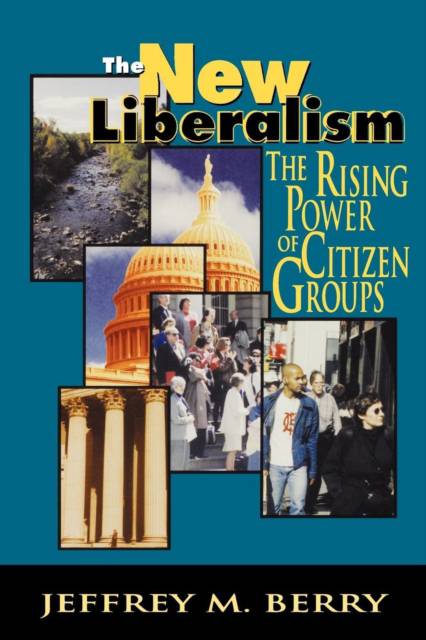
- Afhalen na 1 uur in een winkel met voorraad
- In januari gratis thuislevering in België
- Ruim aanbod met 7 miljoen producten
- Afhalen na 1 uur in een winkel met voorraad
- In januari gratis thuislevering in België
- Ruim aanbod met 7 miljoen producten
Omschrijving
If you think liberalism is dead, think again. In this sure-to-be-controversial book, Jeffrey M. Berry argues that modern liberalism is not only still alive, it's actually thriving. Today's new liberalism has evolved from a traditional emphasis on bread-and-butter economic issues to a form he calls ""postmaterialism""--quality-of-life concerns such as enhancing the environment, protecting consumers, or promoting civil rights. Berry credits the new liberalism's success to the rise of liberal citizen lobbying groups. By analyzing the activities of Congress during three sessions (1963, 1979, and 1991), he demonstrates the correlation between the increasing lobbying activities of citizen groups and a dramatic shift in the American political agenda from an early 1960s emphasis on economic equality to today's postmaterialist issues. Although conservative groups also began to emphasize postmaterial concerns--such as abortion and other family value issues--Berry finds that liberal citizen groups have been considerably more effective than conservative ones at getting their goals onto the congressional agenda and enacted into legislation. The book provides many examples of citizen group issues that Congress enacted into law, successes when citizen groups were in direct conflict with business interests and when demands were made on behalf of traditionally marginalized constituencies, such as the women's and civil rights movements. Berry concludes that although liberal citizen groups make up only a small portion of the thousands of lobbying organizations in Washington, they have been, and will continue to be, a major force in shaping the political landscape.
"Specificaties
Betrokkenen
- Auteur(s):
- Uitgeverij:
Inhoud
- Aantal bladzijden:
- 236
- Taal:
- Engels
Eigenschappen
- Productcode (EAN):
- 9780815709077
- Verschijningsdatum:
- 1/08/2000
- Uitvoering:
- Paperback
- Formaat:
- Trade paperback (VS)
- Afmetingen:
- 152 mm x 231 mm
- Gewicht:
- 344 g

Alleen bij Standaard Boekhandel
Beoordelingen
We publiceren alleen reviews die voldoen aan de voorwaarden voor reviews. Bekijk onze voorwaarden voor reviews.









